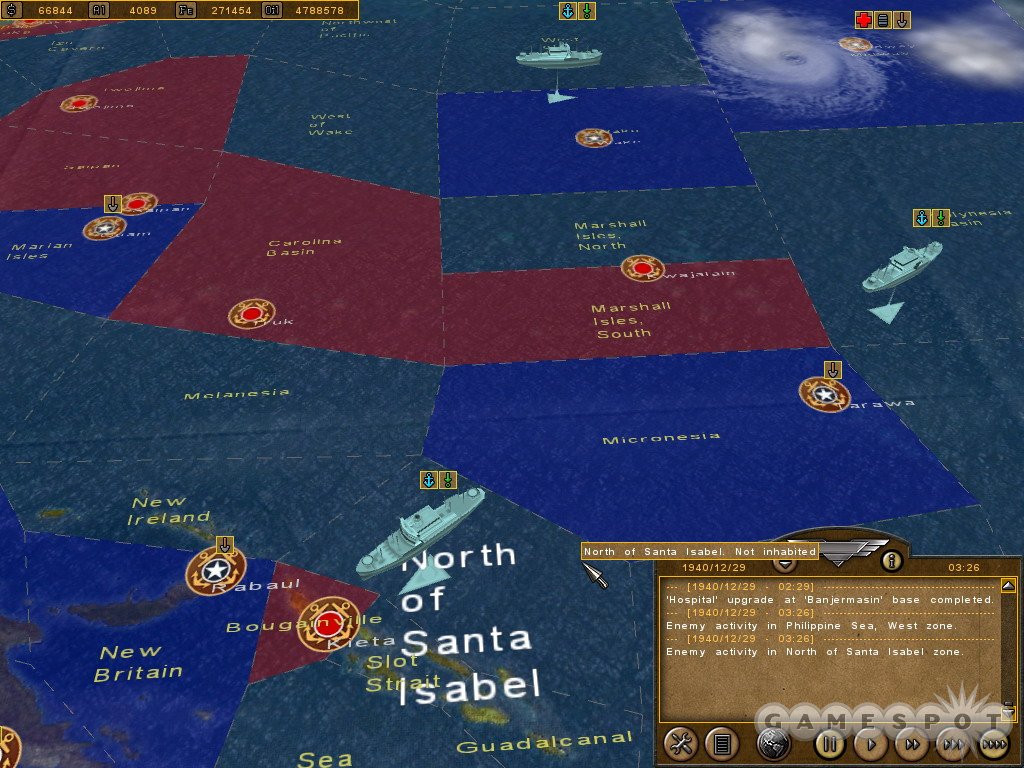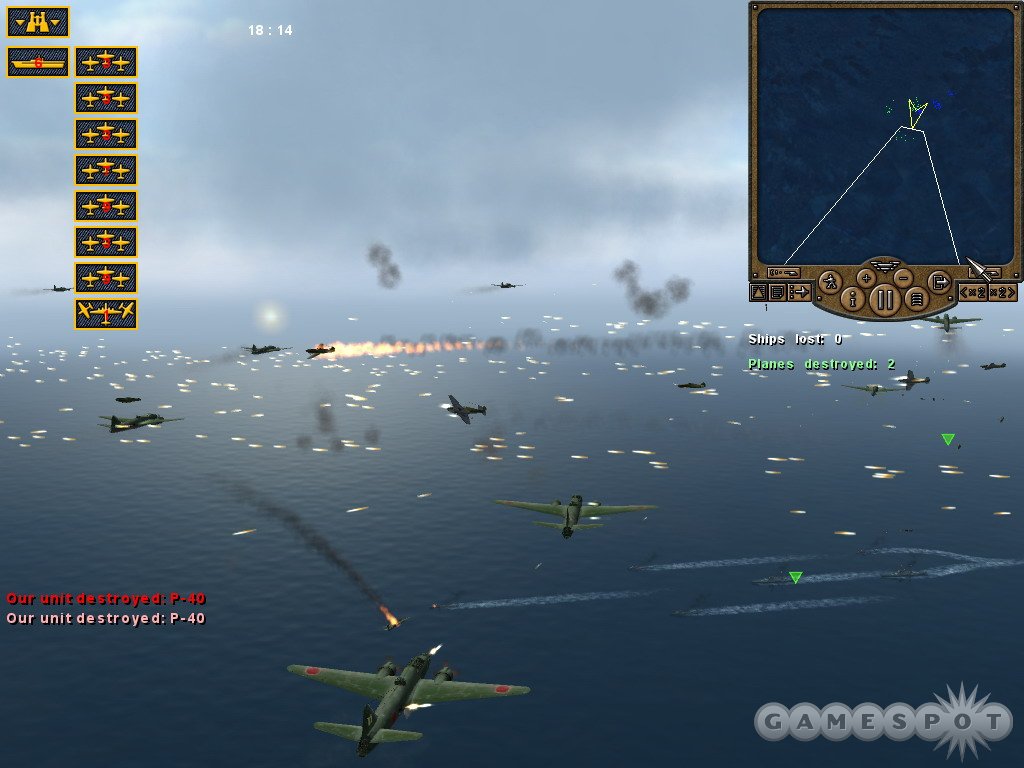Pacific Storm Hands-On - World War II Naval Strategy Meets Real-Time Battles
We get our hands on a work-in-progress version of Pacific Storm to see how this strategy game will let you wage World War II naval warfare.
In our previous coverage of Pacific Storm, we focused on the real-time tactical battles that will allow you to command the ships and planes of the Pacific theater of World War II. Yet there's far than just battles in this strategy game. We recently got our hands on a work-in-progress version of the game, and it has given us a good look at the game's deep strategic layer, which will let you manage the bigger picture of the war to a considerable degree.

Pacific Storm will let you play as either the United States or Japan during World War II, and you'll command far more than their respective navies and air forces. As you can guess from the name, the game's focus is solely on the Pacific theater of operations, stretching from the West Coast of the United States to China and Australia.
Like a board game, the strategic portion of the game divides the map into sectors. While quite a number of sectors consist of empty ocean, there are a fair share that feature land, which you can build bases and ports on. Bases can be upgraded with buildings, which themselves can be upgraded further to increase their capabilities. These buildings appear in the battles, so if you build coastal defenses at Pearl Harbor and the enemy attacks, you'll see those defenses in the game. Other buildings won't have a direct impact on combat but will have value nonetheless. Industrial buildings enhance your construction, storage tanks and warehouses increase the supplies to your various fleets, churches increase local morale, and so on.
In addition to building construction, you can handle various other details of your military while in the base interface, from recruiting personnel and assigning famous officers to various commands, to forming fleets. Fleet formation is just a basic way of assigning ships to battle groups. For example, you can have a separate destroyer squadron or combine it with a surface task force to create a larger force. Beyond that, you have control over some of the national aspects of your war effort. The research screen lets you determine which new technologies to uncover, which will help you unlock more powerful weapons, engines, designs, and more. You can even study the atomic bomb, though that will take a large amount of research. And if you need something researched quickly, you may be able to purchase the technology from your allies, though this is generally more expensive than researching it yourself.
This strategic layer is so deep that you could probably play the entire game without dropping into the real-time battles. In fact, you're given an option to let the game calculate the results of battles automatically, if you don't want to fight them yourself. This is just like the system in Rome: Total War and other dual-layer strategy games, though we should note that the strategic layer of Pacific Storm isn't turn-based, but rather continual time. The clock keeps ticking while you play, and units will move around while you're making your decisions. You can pause the clock, or accelerate it to speed up the lulls between important events.

It's important to keep in mind that all this micromanagement is going to be optional. You can ignore most of it, and the computer will handle all the messy details for you. Indeed, we let the computer oversee all the various build queues for most of our bases, and we intervened only when we needed to prioritize the construction of a certain building or the research of a certain technology. This kind of strategic depth will obviously appeal to World War II strategy fans, particularly those who like naval warfare. These kinds of fans usually focus on the gameplay and not the graphics, which will probably be a good thing, since the visuals in Pacific War are admittedly a bit dated. This game remains ambitious nonetheless, and it will attempt to capture the huge scale of the Pacific war with a notable amount of detail. Pacific Storm will ship later this summer.
Got a news tip or want to contact us directly? Email news@gamespot.com
Join the conversation